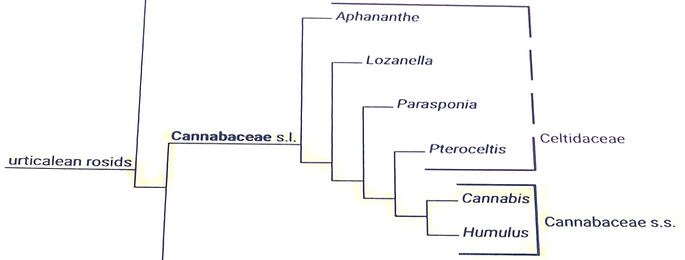"The Essence of Healing: Hops Extract "THE MASTER MOLECULE" - A Marvel of Holistic Wellness."
Experience the captivating realm of Hops Extract, a botanical treasure from the Humulus lupulus plant, as we delve into the fascinating worlds of alternative medicine and holistic wellness. Beyond its traditional role in beer brewing, Hops Extract emerges as a pivotal player the realm of natural supplements, capturing the interest of healthcare professionals, herbalists and enthusiasts worldwide.
The Essence of Hops Extract:
Historical Significance:
Beyond its brewing roots, Hops Extract boasts a rich historical tapestry in traditional medicinal practices that span centuries. Today, it stands as testament to nature's potent capabilities.
Unparalleled Versatility:
Hops Extract shines as an exceptional organic master molecule, offering unmatched versatility and uniqueness. Its integration into daily routines holds the promise of profound positive impacts on physical and mental well-being.
Well-Documented Benefits:
Extensive research, with over 200 publications available on PubMed, the renowned National Library of Medicine, underscores the efficacy of Hops Extract. These studies provide compelling evidence of the remarkable health benefits locked within this extraordinary plant extract.
A Journey Through Time and Research:
Cannabaceae Family Legacy:
Belonging to the esteemed Cannabaceae family, Hops Extract carries a legacy rooted in traditional healing practices have withstood the test of time. Millennia of historical use set the stage for its current recognition in modern wellness.
Global Acknowledgment:
Medical professionals worldwide are increasingly recognizing the profound influence Hops Extract on overall health and wellness. Ongoing research continues unveil the depth of its potential, solidifying its place as a potent tool for promoting better health.
Unlocking Potential for Optimal Health:
Physical and Well-Being:
Incorporating Hops Extract into your daily regimen can lead to a holistic enhancement of physical and mental well-being. Its therapeutic properties extend beyond the conventional, offering a comprehensive approach to health.
Immune System Support:
Hops Extract has been identified as a valuable ally unifying the immune system. Its natural properties contribute to the body's defense mechanisms, potentially bolstering resilience against illnesses.
Disease Prevention:
Preliminary studies suggest that Hops Extract may play a role in disease prevention. As research progresses, the potential for proactive health management becomes increasingly evident.

Medical Video's
Breakthrough Discovery.


Breakthrough Discovery.

Unlocking the Healing Power of a Rare Plant_ Microbiome Rebalancing and Restoration.

Potential of an Ingredient to Combat 60 Different Human Cancers - A Scientific Breakthrough!

Unlocking the science health industry's ignored.
Humulus Lupulus | Hops Genetic Chart
Cannabaceae Family Genetics

Welcome to the realm of holistic well-being, where the intricate world of nature unfolds into the extraordinary benefits of flavonoids, particularly those derived from the humble yet powerful hop. These remarkable properties of flavonoids in hops include xanthohumol, isoxanthohumol and humulones.
The Flavonoid Spectrum in Hops:
**Xanthohumol:** A prominent flavonoid in hops, xanthohumol takes center with its potent antioxidant properties. This compound has been garnering attention for its potential therapeutic effects.
**Isoxanthohumol:** Another noteworthy flavonoid, isoxanthohumol, to the rich antioxidant profile of hops. Together with xanthohumol, it forms a dynamic duo in promoting cellular protection.
**Humulones:** the trio, humulones add their unique touch to the flavonoid composition of hops. Their presence further enhances the holistic benefits, making hops a valuable natural resource.
**The Power of Flavonoids:** Flavonoids are renowned for their multifaceted impact on health, and those found in hops are no exception. Here's a glimpse into the extraordinary properties that make flavonoids a vital component promoting holistic well-being:
**Antioxidant Defense:** Flavonoids, including those in hops, exhibit robust antioxidant properties. They act as cellular defenders, neutralizing free radicals and shielding cells from oxidative damage, which is crucial for maintaining health and preventing various diseases.
**Anti-Inflammatory Support:** Beyond their antioxidant prowess, flavonoids showcase remarkable anti-inflammatory properties. They play a pivotal role in reducing inflammation within the body, contributing to a balanced and harmonious state of well-being.
**Cancer and Heart Disease Prevention:** Scientific studies highlight the potential health benefits of flavonoids in preventing and treating chronic conditions. Flavonoids in hops have shown promise in the prevention and treatment of cancer, heart disease, and other persistent health challenges.
**Mental Well-Being:** The spectrum of flavonoids in hops may extend its benefits to mental health. Preliminary research suggests potential anti-anxiety and antidepressant effects, offering a holistic approach mental well-being.
**Embracing Holistic Health:** Recognize the significance of embracing the holistic benefits that flavonoids in provide. From cellular protection to anti support, their potential impact on chronic conditions and mental well-being is vast.
Cancer
Hops compound, xanthohumol has been shown in test tube studies to kill certain types of cancer, including breast, colon, ovarian, liver, melanoma, leukemia, and non-small cell lung cancer.
Xanthohumol exerts its effects through several mechanisms. It can be cytotoxic, directly killing cancer cells, or it can trigger apoptosis, the programmed death of cancer cells. Cancer occurs when cells mutate and no longer undergo apoptosis, allowing them to multiply uncontrollably. If scientists can identify how xanthohumol activates apoptosis in cancer cells, it could lead to the development of novel cancer therapies.
Studies have shown that xanthohumol inhibits the effects of over sixty different types of cancer, including leukemia, lung, colon, breast, prostate, and many others. It also inhibits the activation of NF-kB, a protein complex that is involved in regulating the immune response to infection, which in turn can prevent cancerous mutations and changes in the cell. Furthermore, xanthohumol has a moderate ability to neutralize reactive oxygen species (ROS), which are messenger molecules that regulate signaling in cell activity and control cell death.
Hops compound xanthohumol has anti-cancer effects that could potentially lead to the development of new cancer therapies.
-
According to a 2018 review of studies conducted in China, xanthohumol was able to kill certain types of cancer in test tube studies, including breast cancer, colon cancer, ovarian cancer, liver cancer, melanoma, leukemia, and non-small cell lung cancer.
-
One published article in the journal Molecules discusses the various ways that xanthohumol appears to fight against cancer. For example, xanthohumol has been found to be cytotoxic in some cases, meaning that it can directly "poison" and kill cancer cells. In other cases, it triggers apoptosis, which is the natural process of programmed cell death that cancer cells have lost the ability to undergo. By identifying how xanthohumol activates apoptosis in cancer cells, researchers hope to develop novel cancer therapies.
-
In addition to killing cancer cells, xanthohumol has been found to inhibit the activation of nuclear factor kappa beta (NF-kB), which is a protein that promotes inflammation and is involved in the development of certain types of cancer. By inhibiting the activation of NF-kB, xanthohumol can help prevent cancerous mutations and changes in cells.
-
A published medical article in the journal Oncotarget has also reported that xanthohumol has a moderate ability to neutralize reactive oxygen species (ROS). ROS are messenger molecules that regulate signaling in cell activity and can lead to cell death if levels become too high. By neutralizing ROS, xanthohumol can help regulate signaling in cells and prevent cell death.
Overall, while more research is needed to fully understand the potential anti-cancer effects of hops compound xanthohumol, these findings suggest that hops may have promised therapeutic potential in the fight against cancer.
Cardiovascular
Hops contain a compound called xanthohumol, which is believed to have anti-restenotic effects, helping to relax blood vessels and improve blood circulation. Studies have found that xanthohumol can increase levels of "good" HDL cholesterol reduce the risk of atherosclerosis, a condition in which plaque buildup in the arteries can lead to heart attacks and strokes. Additionally, hops may benefit people with obesity by promoting weight loss, reducing abdominal fat, lowering blood pressure, and increasing insulin sensitivity.
According a study published in the American Journal of Clinical Nutrition, consuming a hop-derived supplement may reduce cholesterol levels and improve cardiovascular health. The study followed 79 participants over a period of 12 weeks, during which they consumed either a placebo or a supplement containing xanthohumol, a flavonoid found in hops. Those who consumed the supplement showed a significant decrease in total cholesterol levels, as well as a reduction in LDL cholesterol levels (commonly referred to as "bad" cholesterol). In addition, the supplement was found to have anti-inflammatory effects, which may also benefit cardiovascular health.
Further research has suggested that hops may offer other potential cardiovascular benefits. A study published in the Journal of Agricultural and Food Chemistry found that a in hops known as iso-alpha acids may help to prevent atherosclerosis, a condition in which plaque builds up in the arteries and increases the risk of heart attack and stroke. Furthermore, a 2019 review published in the journal Nutrients examined the effects of hop-derived compounds on cardiovascular disease. The review found that xanthohumol and other compounds in may have anti-inflammatory effects, helping to reduce inflammation in the arterial wall and prevent the development of atherosclerosis. The review also noted that xanthohumol may help regulate blood pressure and reduce the risk of developing hypertension, a major risk factor for cardiovascular disease. Overall, the research suggests that hop-derived compounds, particularly xanthohumol, may have potential as a natural therapy for preventing and cardiovascular disease.
Brain
Key in protecting brain cells, according to a study published in the Journal of Agriculture and Food Chemistry, is that " compound found in hops could protect the brain against Alzheimer's and Parkinson's disease." Researcher Jianguo Fang and colleagues already knew that oxidative plays a role in brain disease. They speculated that they could halt or at least delay brain disease if they could protect brain cells, neurons. The study titled "Xanthohol, a Polyphenol Chalcone Present in Hops, Activates Nrf2 Enzymes to Confer Protection Against Oxid Damage in PC12 Cells" (Journal of Agricultural and Food Chemistry, 2015) looked at the protective effects of xanthohol on PC12 cells, which are a type of neuron. The researchers found that xanthohumol activated cellular defense system called Nrf2, which helped protect the cells against oxidative damage.
Another study, "Xanthohumol, a Polyphenol Chalcone from Hops, Induces Apoptosis and Impairs Viability in Human Hepatic Carcinoma Cells by Affecting the AMPK-SIRT3 Pathway" (Food and Chemical Toxicology, 201), focused on the effects of xanthohumol on liver cancer cells but also explored the compound's potential benefits for brain health. The researchers found that xanthohumol was able to induce apoptosis, or programmed cell death, in the cancer cells, speculating that this effect could help protect against neurodegenerative diseases.
In "Xanthohumol Improves Cognitive Flexibility in Young Mice (Behavioural Brain Research, 2017), Fang's team noted that this compound found in hops protected neuron cells, stating, "Xanthohumol showed moderate ability to neutralize reactive oxygen species (ROS), which messenger molecules that can regulate signaling in cell activity, including cell death." This study investigated effects of xanthohumol on cognitive function mice, finding that those fed xanthohumol had better cognitive flexibility than that were not. They suggested that xanthohumol could be a potential treatment cognitive impairment associated with aging or neurodegenerative diseases.
Additionally, a 2018 study published in the Journal of Agricultural and Food Chemistry found that xanthohumol could protect brain cells against oxidative stress caused by betaamyloid, a protein that accum in the brains of Alzheimer's patients. The study also showed xanthohumol cognitive function in mice with Alzheimer's-like symptoms. Overall, these studies suggest that hops, specifically the xanthohumol, may have a range of benefits for brain health and the prevention of neuroenerative diseases.
Research and Information are gathered from top qualified professionals, doctors, holistic professionals, naturalist, and herbalists from across the globe.
SUBSCRIBE FOR THE LATEST NEWS:












